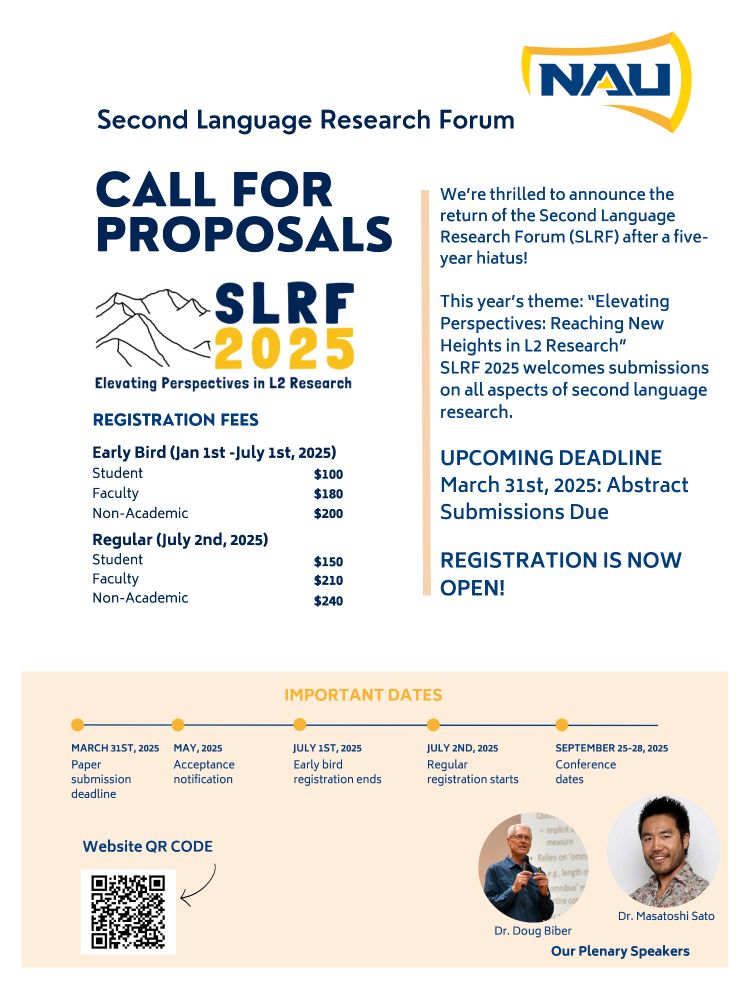
Violets are blue.*
(*Actually purple,
But what can you do?)
Violets are blue.*
(*Actually purple,
But what can you do?)
journals.ed.ac.uk/innovations/
journals.ed.ac.uk/innovations/
A fascinating new study from the University of Exeter shows that herring gulls don’t just react to what we say — they react to how we say it.
🔗 tinyurl.com/mta7ba9f
🧵👇
#langsky #linguistics #language

A fascinating new study from the University of Exeter shows that herring gulls don’t just react to what we say — they react to how we say it.
🔗 tinyurl.com/mta7ba9f
🧵👇
#langsky #linguistics #language
The most famous episode of his life is when he selflessly cut his cloak (in Latin: 'cappa') in two. That cloak was later venerated in Frankish lands, from which come the words 'chapel' and 'chaplain'.
www.hrw.org/news/2025/08...

www.hrw.org/news/2025/08...
In @currentbiology.bsky.social, @chazfirestone.bsky.social & I show how these images—known as “visual anagrams”—can help solve a longstanding problem in cognitive science. bit.ly/45BVnCZ
In @currentbiology.bsky.social, @chazfirestone.bsky.social & I show how these images—known as “visual anagrams”—can help solve a longstanding problem in cognitive science. bit.ly/45BVnCZ

roryturnbull.github.io/papers/Turnb...
roryturnbull.github.io/papers/Turnb...
🔗 tinyurl.com/4mte5vae
#langsky

🔗 tinyurl.com/4mte5vae
#langsky


Attendance is free. Please repost for reach!
blogs.ncl.ac.uk/phon-up/
Attendance is free. Please repost for reach!
blogs.ncl.ac.uk/phon-up/
Your Pope-name is the last thing you ate IN LATIN, + the number of letters in your last name (in roman numerals of course)
signed
Pope Pirum XIII
Your Pope-name is the last thing you ate IN LATIN, + the number of letters in your last name (in roman numerals of course)
signed
Pope Pirum XIII






